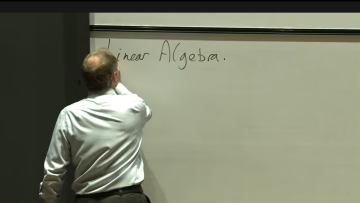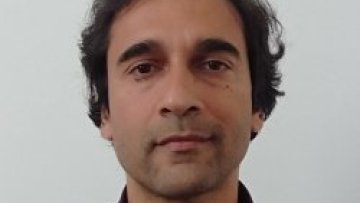Over the past four years we have been making student lectures available to anyone who wants to take a peek at how we teach. You can now watch 85 lectures covering all four years of our undergraduate courses and including some whole courses. Geometry, calculus, number theory, topology, probability and much, much more: take your pick.
Andy Wathen is our guy at the whiteboard in our latest addition, the first lecture in the first year Linear Algebra course (video below). Many more to follow over the next few weeks.
Systems of chemical reactions figure prominently in models throughout the natural sciences. Biology in particular gives rise to hugely complicated reaction networks which, somehow, perform intricate and delicate functions. How do we make sense of these complex networks, and try to understand the relationships between their structure and function?
Euler systems



